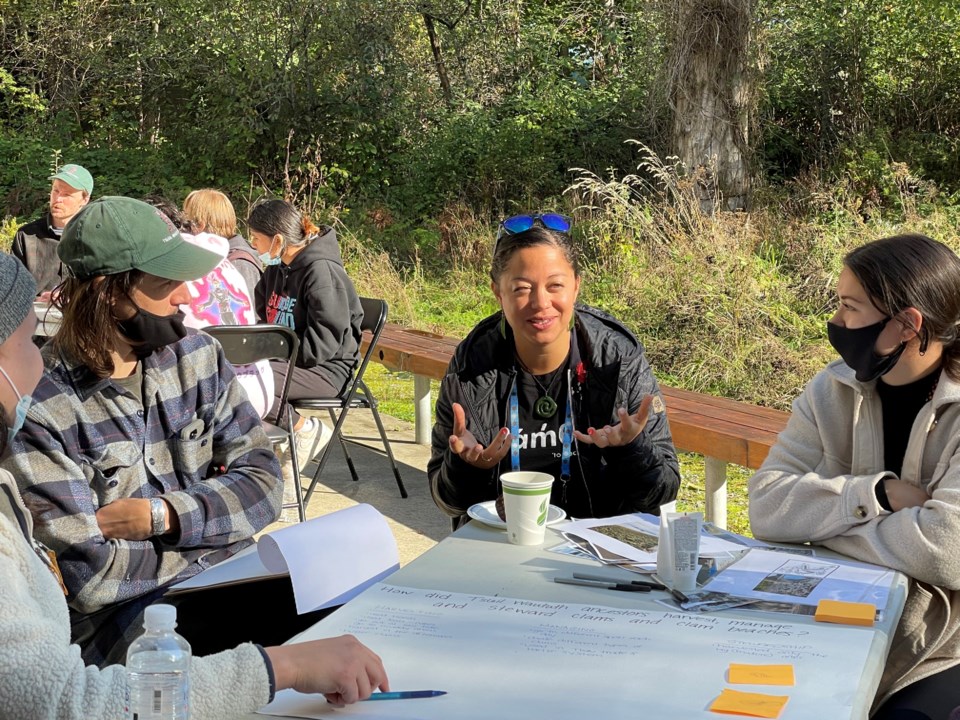Education experts across the North Shore believe the province’s newly announced Indigenous-focused graduation requirement is a “step in the right direction” for students and towards reconciliation.
The change to B.C.’s graduation program comes as the province looks to bolster its commitment to truth, reconciliation and anti-racism, and would see students fulfill four credits (of the 80 credits needed to graduate) from Indigenous-focused courses.
In a release earlier this month, the province said the change “represents an important next step towards lasting and meaningful reconciliation, building on work to date to incorporate Indigenous content and perspectives into the provincial curriculum, educator professional development, and professional standards for certified educators in B.C.”
Tsleil-Waututh Nation School vice-principal Sarah Martz said the requirement for all British Columbians to learn about Indigenous histories and cultures in a meaningful way is a move “definitely [in] the right direction.”
Martz is hopeful the courses and content that come from the announcement address issues within previous social studies programs that have historically pan-Indigenized first peoples.
“I'm hoping that the courses keep developing as well, and that the courses themselves will be put together by Indigenous people and the First Nations Education Steering Committee to verify that the content is accurate,” she said. “Because in the past, how social studies has been taught … it didn't really highlight the vast diversity of peoples, of languages. It wasn't an accurate representation of Indigenous people.”
Martz noted that while she’s hopeful, the outcome of the announcement is yet to be determined. Reiterating how important content is, Martz also noted that the new B.C. teaching standard implemented in 2018, called for educators to “critically examine their own biases, attitudes, beliefs, values and practices to facilitate change.”
“It also mandates that we need to incorporate Indigenous perspectives in our teaching. … There’s just a [lack of] capacity for that. There’s a lot of people that's a struggle [for] and so, hopefully, along with the courses, is the drive for building capacity and having Indigenous people and their close allies leading that,” she said.
Martz said the implementation of the requirement will help move away from misinformation about Indigenous people and will help to build stronger relationships with host nations on whose territory students and school communities live.
“That's a huge point, and for people to take their own initiative to learn, because often people come to Indigenous organizations or Indigenous Nations, and they go, ‘Tell me all about this, teach me your ways.’ And well, that's a big job to do. I think these courses can support with that,” she said.
The TWN School’s curriculum is mostly Indigenous-focused, Martz said, with many of their students taking Indigenous credits from Grade 10 upwards towards graduation. When thinking about what the requirement means to students across the province, Martz noted, “It makes sure it's not just Indigenous students taking these courses… and I think makes sure that these courses are actually being taught in public, private, any school offering the B.C. curriculum.”
Martz noted a cultural teacher at TWN School believes the grad requirement will address and bring awareness to the “diversity, and depth, and breadth of Indigenous cultures and not [continue to] lump everyone together and stereotyping Indigenous peoples. This will actually bring more insight to non-Indigenous peoples, and cultural awareness and sensitivity that we all need.”
“I think teachers will need a lot of cultural sensitivity training,” she noted.
Sḵwx̱wú7mesh Úxwumixw (Squamish Nation) member and B.C.’s associate superintendent of Indigenous education, Brad Baker, said the province had been working on the change in grad requirements well before he left North Vancouver School District and joined the ministry at the end of last year.
“[I’m] just very proud to see it, because it showed B.C.’s commitment to truth, reconciliation, anti-racism. The collaboration between FNESC and the ministry, it’s excellent to see them working together to service kids,” he said.
Baker said the requirement is “a great step forward” because it will allow for all students to learn about and truly understand Indigenous titles and rights.
“The big thing for me, is it's a great step towards true understanding of who we are as British Columbians, First Nations and Canadians.”
Baker noted that each school district will have an important role in developing localized courses and content, adding, “We want boards to engage with local First Nations leaders to develop more authorized courses, but also to support the curriculum and resources for the original courses.
“[The North Vancouver School District] can work with the local First Nations to hopefully develop courses that are relevant to this area.”
Baker believes that the move will also greatly benefit Indigenous students in the school system.
“Because now, you're going to be seeing more and more Indigenous cultures and ways of knowing part of the fabric for every learner in the schools through this course bundle.”
The new graduation requirement will come into effect during the 2023/24 school year, and more information can be found on the province’s website.


.png;w=120;h=80;mode=crop)

